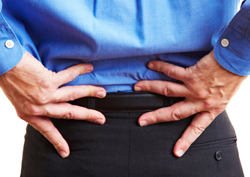 When news agencies speak of “The Recovery” it is done in general terms, often with little regard to specific effects on individuals; like you and me. It is too difficult for national organizations to extract the minuscule detail of individual circumstance, yet it is the sum of the individual stories that create the overall picture.
When news agencies speak of “The Recovery” it is done in general terms, often with little regard to specific effects on individuals; like you and me. It is too difficult for national organizations to extract the minuscule detail of individual circumstance, yet it is the sum of the individual stories that create the overall picture.
We all have different stories; our realities of the moment sway with job conditions, family drama, graduation excitement, bank balance; the list of factors and events molding today’s focus are as long as the line outside Toys-R-Us on Christmas Eve. Most of the events that encounter us today will be good; we are managing our lives to be good, often great. Some of the stuff that happens today however, will not be good; it may even be downright lousy.
Parts of today will put a load on your shoulders, and some of yesterday may still be hanging on, adding more stress to your back. That is okay, life wasn’t meant to be perfect all the time. One of the great tests in life is learning how to embrace the good of today while not letting the bad drag you down. When we learn how to live in the good, it is like we have beaten the bad; the headline in our personal daily paper is about the good parts of the day, and the bad stuff is relegated to a small column on page 8.
A few weeks back I wrote about the importance of a positive, outward focused attitude. My thoughts today are similar, but the emphasis is about two important parts of the body; your back and your heart. The negative load that we carry today (grief, worry, physical pain, fear, depression, anger) is initially supported by our back. That long, narrow portion of the body comprised of bone, muscle and nerves is designed to keep us upright; head held high, eyes forward and up.
It was not designed to carry a heavy load for long periods. If your back is subjected to heavy loads for too long, it will instinctively shift the load, as a means of survival, to another part of the body. Your heart is the recipient of the negative weight from your back.
Arguably, the heart is the most important organ in the body, it keeps every other part fed and lubricated. The heart is naturally tough because of the muscular requirements of its physical job, but it is also soft, due to the spiritual need for compassion, love and peace; which are also housed in the heart. While the transfer of weight from the back can have detrimental consequences on the physical portion of the heart, it is the softness, warmth and laughter of the heart which can be hurt the most.
So, like our back, the heart will develop survival techniques to protect itself; it will become calloused and hard as a means to deflect the unwanted weight sent by its overworked neighbor. A calloused heart can survive; but happiness and joy will not, for they require the love and peace of a soft heart. The load on our back is a given in life, but we shouldn’t let it define the texture of our heart. We must fight to keep a soft heart.
My back doesn’t complain about carrying a heavy load every once in a while, the exercise brings perspective to the ups and downs of life. It helps me appreciate the good times. However, rather than push the excess weight to my heart, I have found another who will gladly lift the heavy load from me; relieving my burden instantly upon request.
In fact, He is sort of a “burden sponge,” lifting the heavy loads for anyone who asks. Buy accepting my burden; He protects my heart from becoming calloused.
He stood as tall as was possible after the fall, the weight of the cross kept His knees from completely straightening. Blood mixed with sweat dripped in a steady stream from His chin, a result of the crown brutally impaled on His head during the beatings of the previous day. The top of the hill was near, and with each step more dirt and mud was ground into the open wounds on His feet. His brief rest, while lying on the cross at the foot of His final resting place, was abruptly halted as the solder raised the hammer high in the air, preparing to strike the nail. Later, just before His last breath, He spoke:
“Forgive them Father, for they do not know what they are doing.”
And then He died.
The weight He carried (for you and me) up that hill was infinitely heavier than the cross on His shoulder. Yet, He still held onto the soft compassion and love in His heart.
Jesus – the embodiment of a heavy load and a soft heart.
Thanks for reading,
Michael Obermire